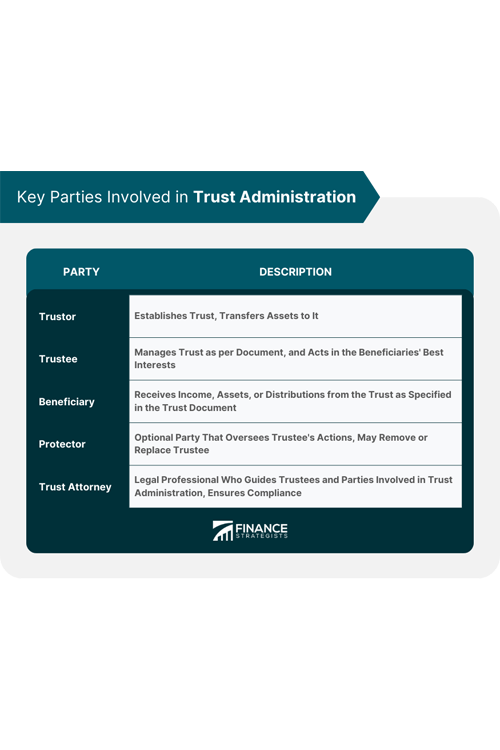
When Is a Trust Administrator Needed?
1) When the settlor of a trust passes away:
Upon the death of the trust’s creator (settlor), the trust administration process begins. The successor trustee takes over the management and distribution of the trust assets according to the terms specified in the trust document.
4) When a trust becomes irrevocable:
Some trusts are set up to become irrevocable upon a specific event, such as the incapacitation or death of the settlor. At that point, the trustee must begin trust administration and carry out the trust’s provisions.
2) When a beneficiary becomes entitled to receive trust assets:
Trust administration may be necessary when a beneficiary reaches a certain age or fulfills specific conditions specified in the trust. The trustee is responsible for distributing assets to the beneficiaries in accordance with the trust’s instructions.
5) When there are ongoing management and investment duties:
In certain trusts, the trustee has ongoing responsibilities to manage and invest the trust assets. Trust administration is necessary to fulfill these duties, ensuring that the assets are properly managed and generating income for the beneficiaries.
3) When a dispute arises regarding the trust:
If there is a disagreement or dispute among the beneficiaries or between the beneficiaries and the trustee, trust administration may be required to resolve the issue. This can involve mediation, arbitration, or legal proceedings.
